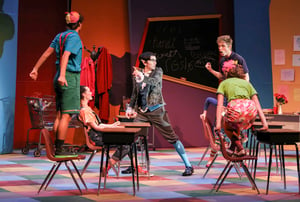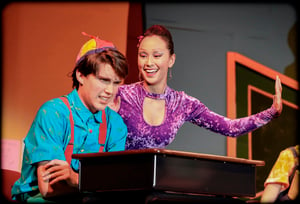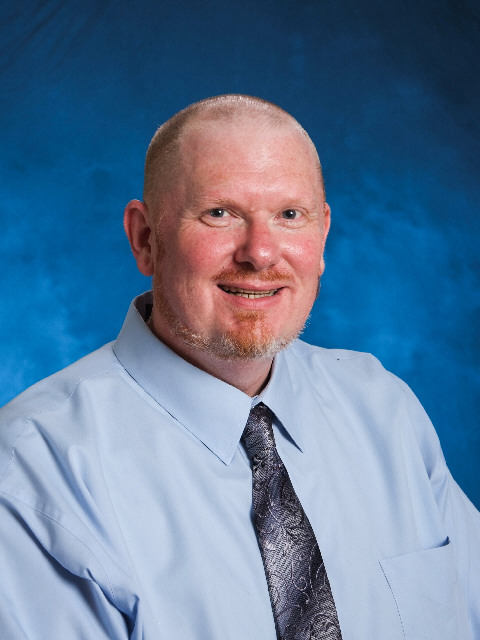 At many times during our adult lives, we are asked to stand before a crowd and speak, deliver a presentation for work, or even offer a toast to a happy couple. Speaking in front of a group of people can make your palms sweaty and your heart starts to race. Without a podium to lean on, one can feel exposed and uncomfortable. Experience in the performing arts can empower students to express themselves in public forums with effectiveness, skill, and confidence for the rest of their lives
At many times during our adult lives, we are asked to stand before a crowd and speak, deliver a presentation for work, or even offer a toast to a happy couple. Speaking in front of a group of people can make your palms sweaty and your heart starts to race. Without a podium to lean on, one can feel exposed and uncomfortable. Experience in the performing arts can empower students to express themselves in public forums with effectiveness, skill, and confidence for the rest of their lives
- Body language
- Hand gestures
- Proper vocal inflections.
More important to students’ future success, however, such a class provides a setting in which students learn—through constant trial and error, success and failure—how to evaluate their own progress. Students learn from their bold mistakes in a safe, non-threatening, teaching environment, giving them the unique opportunity to receive immediate feedback, make adjustments, and improve on their performances. Through this rehearsal process, students gain confidence and self-understanding and learn to manage their emotions and decision-making processes.
Life frequently throws us curveballs when we have to think on our feet. Who wouldn’t want to be prepared to respond rather than be caught off guard? Improvisation skills are valuable for handling these situations, whether on or off the stage. A good
I have found many of my professional performing artist friends have found great success in the business world. Why? They know how to present themselves. Eye contact, body language, quick thinking, and tone of voice can many times win the job with a positive first impression. These are all skills honed in performing arts classrooms.
"They were interviewing several people but I got the job and started working the day I interviewed, which I believe was due in no small part to my confidence, poise, and body language gained from my training as a performer. The time I spent working in offices in New York was an extremely important step in my development and was greatly aided by the skills and experience I gained in my training as a performing musician." Andrew Bidlack, international tenor, making his Metropolitan Opera debut February 2016
 For students—or any of us—it’s often a fear of failure that keeps us from taking risks. Experience in a performing art program can help! Not a day goes by that I don’t encourage my students to take a chance on failure and to make mistakes. Big mistakes. Without apology. In the performing arts, we celebrate them! Through failure, students learn to recognize their mistakes, identify how they can be better actors, and then have the opportunity to make positive changes during each rehearsal. I also encourage my students to audition for everything they possibly can, understanding that they may not get the part. That way, they learn to handle disappointment when they don’t succeed and will feel absolutely ecstatic when they do.
For students—or any of us—it’s often a fear of failure that keeps us from taking risks. Experience in a performing art program can help! Not a day goes by that I don’t encourage my students to take a chance on failure and to make mistakes. Big mistakes. Without apology. In the performing arts, we celebrate them! Through failure, students learn to recognize their mistakes, identify how they can be better actors, and then have the opportunity to make positive changes during each rehearsal. I also encourage my students to audition for everything they possibly can, understanding that they may not get the part. That way, they learn to handle disappointment when they don’t succeed and will feel absolutely ecstatic when they do.
Performing arts programs focusing on acting are not classes for great
Clint Williams is the Chair of the Performing Arts program at Sanford School in Hockessin, DE, and President of the Delaware Music Educators Association.









